| Dr. Hassan Farhangi, Ph.D., SM-IEEE, and PEng is the Director of the Smart Microgrid Applied Research Team (SMART) at British Columbia Institute of Technology in Burnaby, BC, and Adjunct Professor at the University of British Columbia (UBC) and Simon Fraser University (SFU).
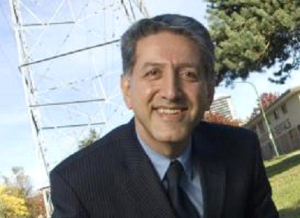
Dr. Farhangi initiated the Smart Microgrid research and development program at BCIT. He is the chief system architect and the principal investigator of BCIT’s Smart Microgrid at its Burnaby Campus in Vancouver, British Columbia.
He has published and presented several papers in scientific journals and conferences in Smart Grid and is a member of various international standardization committees such as IEC CSC TC57 WG17 (IEC 61850), Cigre WG C6.21 (Smart Metering), Cigre WG C6.22 (Microgrids Evolution), etc. A frequent keynote speaker at various international Smart Grid Conferences, Dr. Farhangi has more than 25 years of experience in academic and applied research.
Before joining BCIT, he served as Chief Technical Officer (CTO) of a number of companies involved in the design and development of systems, components and solutions for the Smart Grid.
Dr. Farhangi is a member of Association of Professional Engineers and Geoscientists of British Columbia (APEG), a senior member of Institute of Electrical and Electronic Engineers (IEEE) and leader of Canadian Smart Grid Research Network (NSERC Smart MicroGrid Network NSMG-Net). |
| Matt Horne is the City of Vancouver’s climate policy manager.
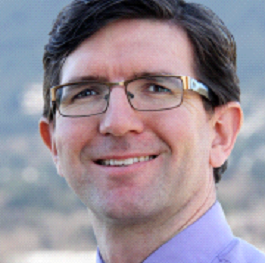
He is responsible for delivering on the City’s commitment to have 100% of the energy used in Vancouver come from renewable sources by 2050. He also advises senior management, and mayor and council on climate change policy issues.
Prior to joining the City, Matt worked for the Pembina Institute helping to advance climate change policy in B.C. and across Canada.
He has a Master of Resource Management degree from Simon Fraser University, and a Bachelor of Industrial Engineering degree from Dalhousie University.
Talk: Vancouver’s Renewable City Strategy
Summary:Vancouver has committed to transitioning to 100% renewable energy by 2050. Matt Horne will lead a discussion on why the City is pursuing the goal, the progress and challenges to date, and the actions it has planned going forward. |
| Mark Tizya
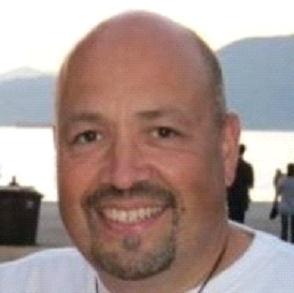
Talk: “Why solar is sexy?”
Abstract: Germany is a world leader in solar PV installations. There are about 1.5 million solar panel systems in the country. Comparing German and Canadian major cities and their total annual sunshine in hours shows some interesting results.
Germany
- Berlin – 1625 hours
- Hamburg – 1557 hours
- Hannover – 1501 hours
Canada
- Vancouver – 1938 hours
- Calgary – 2396 hours
- Edmonton – 2345 hours
- Toronto – 2066 hours
As you can see, Canadian cities have more sunshine hours and days than a global leader in solar installations. |
| Dr. Martin Ordonez Canada Research Chair – Power Converters for Renewable Energy Systems / Renewable power and energy systems, power electronics, power conversion architectures, and control systems.
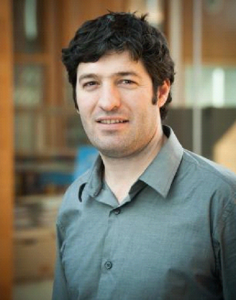
Dr. Martin Ordonez is an Associate Professor and Canada Research Chair at the University of British Columbia (UBC), Vancouver, BC, Canada. He is also the holder of the Fred Kaiser Professorship on Power Conversion and Sustainability at UBC. He was an adjunct Professor with Simon Fraser University, Burnaby, BC, Canada, and MUN. His industrial experience in power conversion includes R&D at Xantrex Technology Inc./Elgar Electronics Corp. (now AMETEK Programmable Power in San Diego, California).
Dr. Ordonez is an Associate Editor of the IEEE TRANSACTIONS ON POWER ELECTRONICS, a Guest Editor for IEEE JOURNAL OF EMERGING AND SELECTED TOPICS IN POWER ELECTRONICS, an Editor for IEEE TRANSACTIONS ON SUSTAINABLE ENERGY.
Talk: “The Future of Power and Energy Infrastructure”
Summary: Volatile hydrocarbon pricing and global pressure for sustainable energy solutions require swift action to incorporate changes into the electrical system. The incorporation of distributed renewable energy generation, smart control systems, and electric/hybrid vehicles into the existing grid infrastructure are challenging but necessary steps towards a more sustainable future. This presentation will describe key technologies and techniques that are necessary to modernize electrical generation, distribution, and consumption. The work that is currently ongoing at the University of British Columbia’s (UBC) campus will be used to illustrate some modern and future implementations. Techniques such as load shedding, peak shifting, active power factor correction, and backup will be discussed. The technical challenges and solutions associated with implementing these sustainable solutions will be addressed. |
| Mr. Francisco Paz (panelist)- Ph.D Candidate at UBC, IEEE Power Electronic Vancouver Vice-Chair
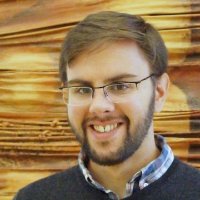
Mr. Francisco Paz is a Ph.D. Candidate at the University of British Columbia (UBC), Vancouver, BC, Canada. He received the M.A.Sc. Degree in Electrical Engineering from UBC and the Electronics Ing. Degree from the National University of Comahue. His research work focuses on impedance-based methods for distributed generation systems based on renewable energy sources. His work received a Best Conference Paper awarded by PELS Technical Committee 5 (TC5) at PEDG. He also serves as the vice-chair of the IEEE Power Electronics Chapter since 2016. |